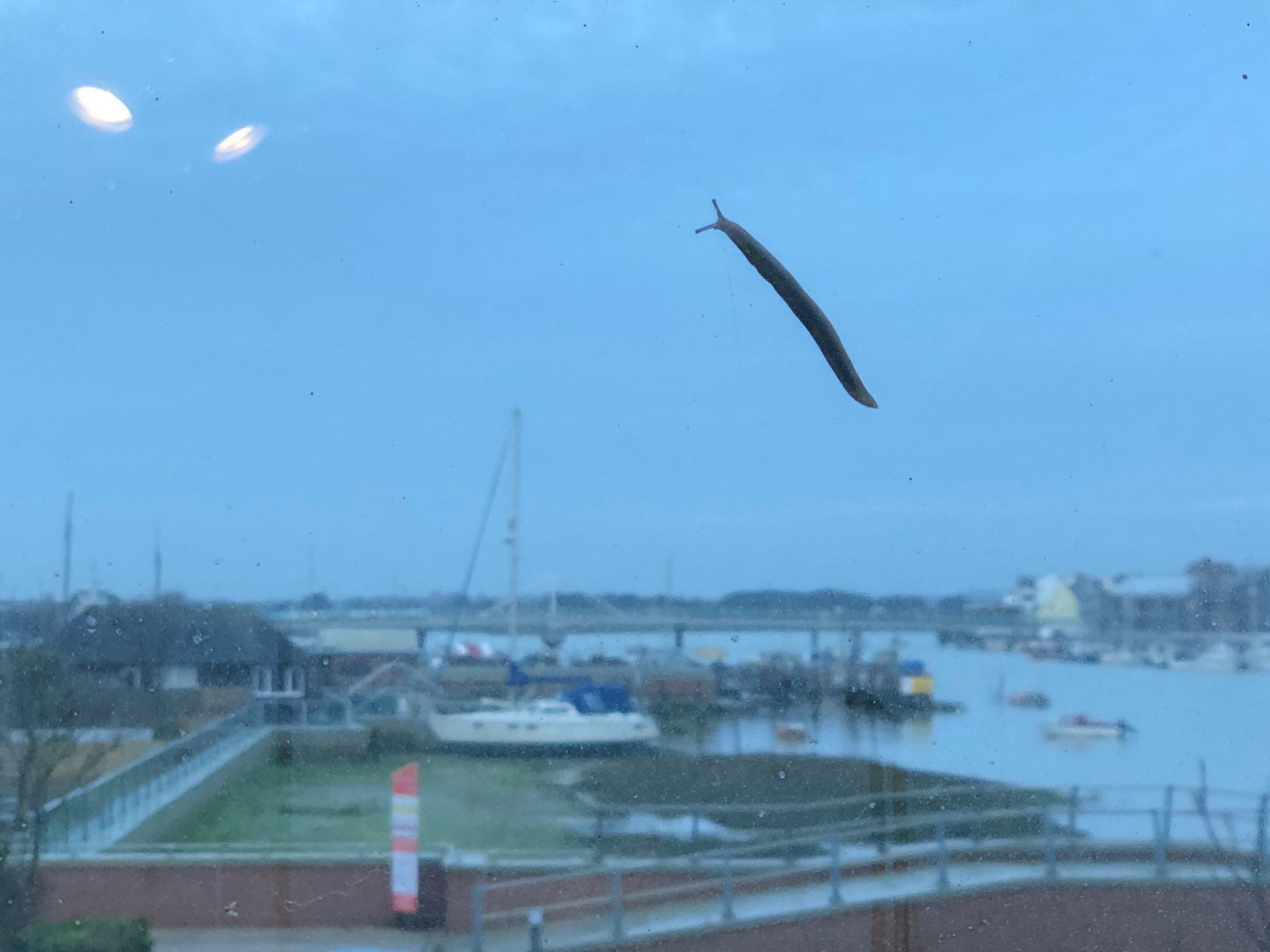Just occasionally, bad things happen to bad people in an amusing enough manner to give you faith in the goodness of the universe: British Nazi set self on fire trying to burn down synagogue
OK. This is… quite a story: The strange case of Paul Zimmer, the influencer who came back as a different person
Newsletters are a particularly brutal medium. You put in the work, craft something you are proud of - and often the first feedback you get is someone unsubscribing. Nothing wrong with them doing that, of course, but it’s almost perfect for shaking your confidence…
Yes, please: A return to blogs (finally? sort of?)
I’m trying something new - triggered because I couldn’t get this stuff in my usual links digest if it was going to work in an email. But I think actually capturing and curating investing stuff from social media is worthwhile:
Headline of the day: It’s Not Arson, You Absolute Fucking Morons
There’s a slug on the kitchen window this morning. Our kitchen is in the first floor. I can’t decide if this slug is ambitious or has had a lucky escape from a bird…

This week has given us a rather ominous look into the future of political #journalism: Dominic Cummings’ blogpost, direct dialogue and its threat to mainstream political journalism
Why aren't we taking Australia's bushfire apocalypse more seriously?
But the response to what’s transpired in Australia — again, over a period that has stretched into months — is unfamiliar, to me at least, and not in a good way. Those California fires transfixed the world’s attention, but while the ones still burning uncontrolled in Australia have gotten some media attention outside the country, in general they have been treated as a scary, but not apocalyptic, local news story.
It’s a harrowing glimpse into the future that awaits many of us if the climate crisis continues in its current direction. And we’re just not paying attention to it.
If you haven’t been paying attention to just how massive the bushfire crisis is in Australia, this set of information and links will open your eyes.
And possibly your bowels.
Oooooh, Matron…
Operio collection by Dead Lotus Couture aims to put latex “in every wardrobe”.
Journalism's Facebook narrative
Dave Winer on journalism’s narrative around Facebook:
Saying online is dangerous is like saying the subway is dangerous. But if you live in New York, you probably want to take the subway. Driving is dangerous. Everything is. Life itself isn’t safe. It’s a mix. You have to learn to discern.
The scam of pseudo-attention metrics
Part of the scam is that the pyramid scheme of attention will somehow pay off for a lot of people. It won’t. It can’t. The math doesn’t hold up. Someone is going to win a lottery, but it probably won’t be us. And a bigger part is that the things you need to do to be popular (the only metric the platforms share) aren’t the things you’d be doing if you were trying to be effective, or grounded, or proud of the work you’re doing.
It is quite remarkable that one of the biggest things to happen in UK politics so far this year… is a blog post.
Still, beats US politics and one man’s Twitter account, I suppose.
Who broke journalism?
”I would like to add that greedy and short-sighted executives and media company owners broke the industry because they were too lazy, arrogant and unintelligent to understand the ramifications of the internet to the information ecosystem.”
🔥
Consume Better — recommendations from the team at Hamburg’s NEXT conference (including myself) on digital media you’ll enjoy for the year ahead.
It’s well-known that women are under-represented amongst both Wikipedia editors and biographies, but how about in the citations.
Go on, have a guess.
This is how existing prejudice gets reinforced.
I’ve reached my daily reading goal on Apple Books. I’m using it to try to push myself to spend more time reading long-form, and not just articles on the web.

